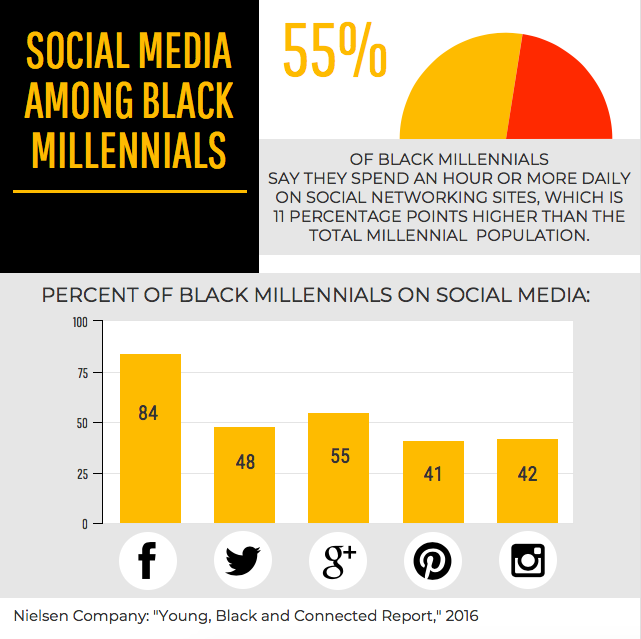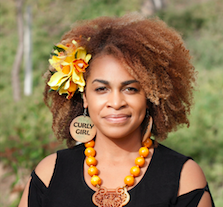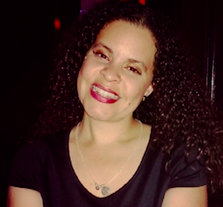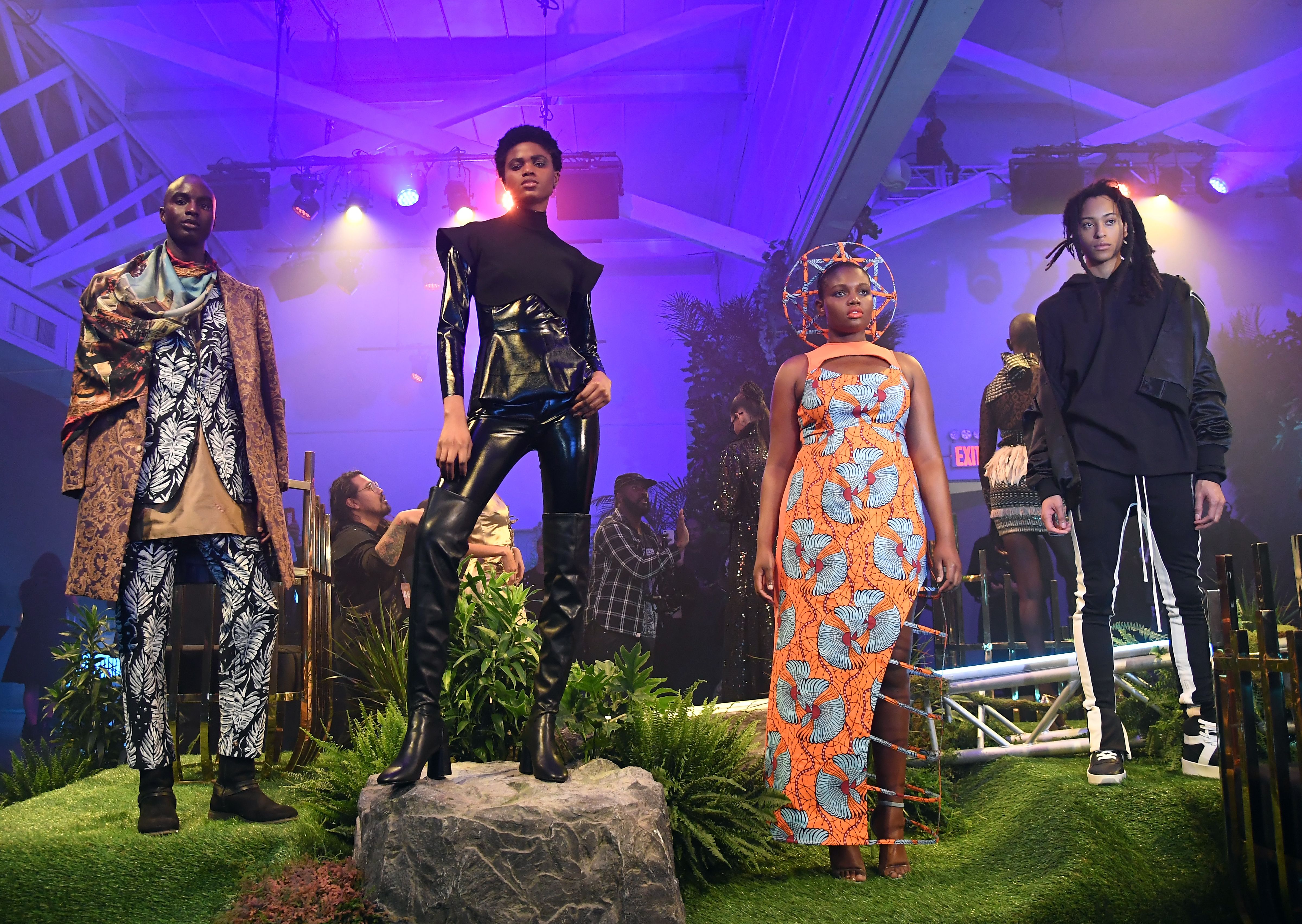Along with the rise of popular shows featuring black lead actors, the naturally curly hair of African-American men and women is also being embraced in film and television.
Kimberly McNair, a professor of African-American Studies at the University of Southern California, said the way you construct a story is deeply rooted in the ways stories have traditionally been told.
"The hero is rarely black, which is one of reasons why 'Black Panther,' 'A Wrinkle in Time,' 'Scandal' or 'How to Get Away With Murder' are so special. We get to be the heroes and she-roes. The story is about us and is framed around us," McNair said.
McNair said African-Americans have been over represented in sitcoms since the Golden Age of television. The first notable sitcoms featuring African Americans on primetime television can be traced to the 1950s when racial integration was federally implemented. Popular radio-turned-broadcast shows such as "Amos and Andy" and "Beulah" became instant successes on television.
"Both shows garnered mixed reviews from African-Americans who objected to archetypes of racists stereotypes and caricatures of Black people disseminated widely through mainstream media," McNair said.
Although "Amos and Andy" received mixed reviews, the show was ranked thirteenth in the Nielsen ratings in 1951 and in 1952, it won an Emmy Award. By the 1960s, television shows such as "I Spy" and "Julia" created a significant analysis of black stereotypes, establishing a standard for black inclusion on primetime television by teaming black characters with white co-stars.
In the 70's, a new genre of film was born: Blaxploitation. Blaxploitation films featured African-American actors in lead roles portraying heroes engaged in glorified violence. Early Blaxploitation films such as "Shaft" (1971) and "Superfly" (1972) both had strong African-American male leads. It was a far cry from the 1950s in which shows presented stereotypical caricatures of African-Americans.
During this time, television also featured strong African-American representation with the premiere of "Roots," an eight part miniseries about an African family sold into slavery in America. The importance of the series is still as significant as it was when it first premiered, as it was the first show to touch on slavery in a raw and engaging manner. When the series first premiered Jan. 23, 1977, its first episode drew in 29 million households. By the time the final eighth episode premiered, it was the single most watched series drawing in 36 million households, or about 100 million people.
"The Cosby Show" changed the world as the magazine ”TV Guide” described the series as the "biggest hit of the 1980s." It was the first time that a show featured an African-American cast depicting a positive representation of a black family.
"The 90's and the early 2000s brought on similar depictions of representation in black sitcoms with popular series like ‘The Fresh Prince of Bel-Air,' 'Moesha,' 'The Jamie Foxx Show' and 'Sister, Sister,'" McNair said.
But black-centered television sitcoms slowly started to diminish into the early 2000s.
According to McNair, as the 90's and the early 2000s came to an end, so did the positive representation of African-Americans in mainstream media. With the birth of reality television series such as "Love & Hip Hop" and "BasketBall Wives," a new genre of television that pitted black women against one another became popular. The concepts of Afrocentrism and black pride were close to nonexistent on network television until the arrival of television series like "Black-ish" which came on the air in 2014.

Nichole Perkins, co-host of Buzzfeed Podcast called "Thirst Aid Kit," said it is important to see black representation in sitcoms given the history of black actors in television and film.
"It's important for people to see pieces of themselves accurately depicted in the media. There is now proof that people who see themselves or see something they've never seen before on television can have a huge impact in their lives," Perkins said.
Nicole Jefferson Asher, a screenwriter and visiting professor at the USC School of Cinematic Arts, said television series with an all-black casts like "Insecure" may differ in representation and interpretation from television series that feature a multi-ethnic cast.
“Shows like ABC's 'Scandal' are different from shows like HBO’s 'Insecure' which is more centered in the black experience. Not only is it centered in a black experience, but a particular black experience of black millennials living in Los Angeles. A show like 'Scandal' is not necessarily centered in the black experience. It is a show that is appreciated for casting multiethnic characters that contribute to the diversity of the show."
As diversity continues to grow, so does the need for more shows that put African-Americans at the forefront of story development. "Change is starting to come as more streaming services like Amazon and Netflix greenlit more shows versus bigger studios," Perkins added.
Screenwriter Nicole Jefferson Asher has a similar view.
"There's a huge surge in both streaming and gaming," Asher explained. "There are so many different avenues that are competing with television that offer so many options for channels. In order to create content that people want to see, you can't just tell the same stories. You have to broaden out and reach new audiences."
Perkins said the same is true in film. "You have surprises like 'Get Out' or 'Mudbound.' These are small independent films with black directors that feature black casts. They are clearly changing the trajectory of what's expected in studios and in Hollywood."
The resurgence of natural hair has played a huge role in the aesthetics of Afrocentrism as magazines, television, film and other avenues of media have begun to feature African-American women with unaltered hair.
Allure magazine's March 2018 issue featured actress Lupita Nyong'o on the cover donning braided hair with the headline "the culture of hair." There's also the actress Yara Shahidi, from both ABC original series "Grown-ish" and "Black-ish," who has been featured on magazine covers and television with natural hair.
"Natural hair can be defined as hair that grows directly from your scalp without the alteration of your curls with chemical," Brandie Kekoa, owner of Be Kekoa Natural Hair Salon said.
Camille Friend, head hair stylist for "Black Panther" said culturally significant hair played a large part in the film, which incorporated traditional African, futuristic African and contemporary African looks.
"If we were going to do a movie about black people, then I wanted to keep the hair natural. I wanted to showcase that you could do black hair, natural hair, any shape, any size and it could still be beautiful," Friend said.
From the Bantu knots worn by Lupita Nyong'o to the silver dreadlocks worn by Angela Bassett, Friend wanted to show a vast array of looks possible for natural hair.
"I wanted to create looks that were timeless. I wanted something that people can look back on the character and think that’s cool. When you look at characters or iconic people like Jackie O., Audrey Hepburn or Coretta Scott King, their hair is of a certain era. That is how I went into 'Black Panther'."
In the book "Hair Story: Untangling the Roots of Black Hair in America," Ayana Byrd and Lori L. Tharp discuss the history of the intersectionality of black hair, politics, economics, history and race.
In many cases, though not all, African-American slaves with lighter skin tones and loosely curled or straight hair often worked as servants in their master's homes while darker-skinned slaves with tightly curled hair often worked in the fields performing more difficult physical labor. Lighter-skinned slaves were often favored (not simply because many of them were the children or grandchildren of their white masters) but because their looks more closely aligned with Eurocentric standards of beauty.
Black women of all skin tones have traditionally strived to have long, straight locks that resemble the hair of their white counterparts. To transform their naturally curly hair, they have used hot combs, straightening irons and chemical relaxers.
Things changed as the 1960s and the 1970s ushered in the Black Power Movement, which promoted racial pride by embracing phrases like "Black is beautiful." For activists of that era, hair Eurocentric hairstyles were seen as signs of assimilation.
During the 90's and the early 2000s, natural hair began to gain traction, but black women in the United States have still not completely embraced natural, chemically untreated hair.
"I think it's time. Black women have had this oppression with our hair and I think we've been oppressed long enough," Rayna Blott, owner and lead stylist of Sekai Natural Hair Salon said. "Why should we put ourselves through using chemicals to look like something we're not? It's been such a mental struggle and it's time that Black women embrace their hair."
A new natural hair movement in the mid-2000s arose with the emergence of social media. As YouTube gained popularity, natural hair bloggers such as Naptural85 and Afrobella started to blog and to create content centered around natural hair. Since then, natural hair bloggers have transcended to other social media platforms such as Instagram and Facebook to show others alike how to take care of their hair.
"Back in the 70's, you were a revolutionary if you wore your hair natural. People may have thought you were bold and aggressive. We're now entering a decade where the media is starting to accept that it's just who we are," Christina Trammel, manager of REHAB Salon in Los Angeles explained.
"I think that it's important to embrace the natural hair movement so that others can accept African-American women for who they are. We’re starting to see in more movies like 'Black Panther' and 'Mudbound.' They make it look powerful and are slowly starting to make it look like the norm," Trammel said.



